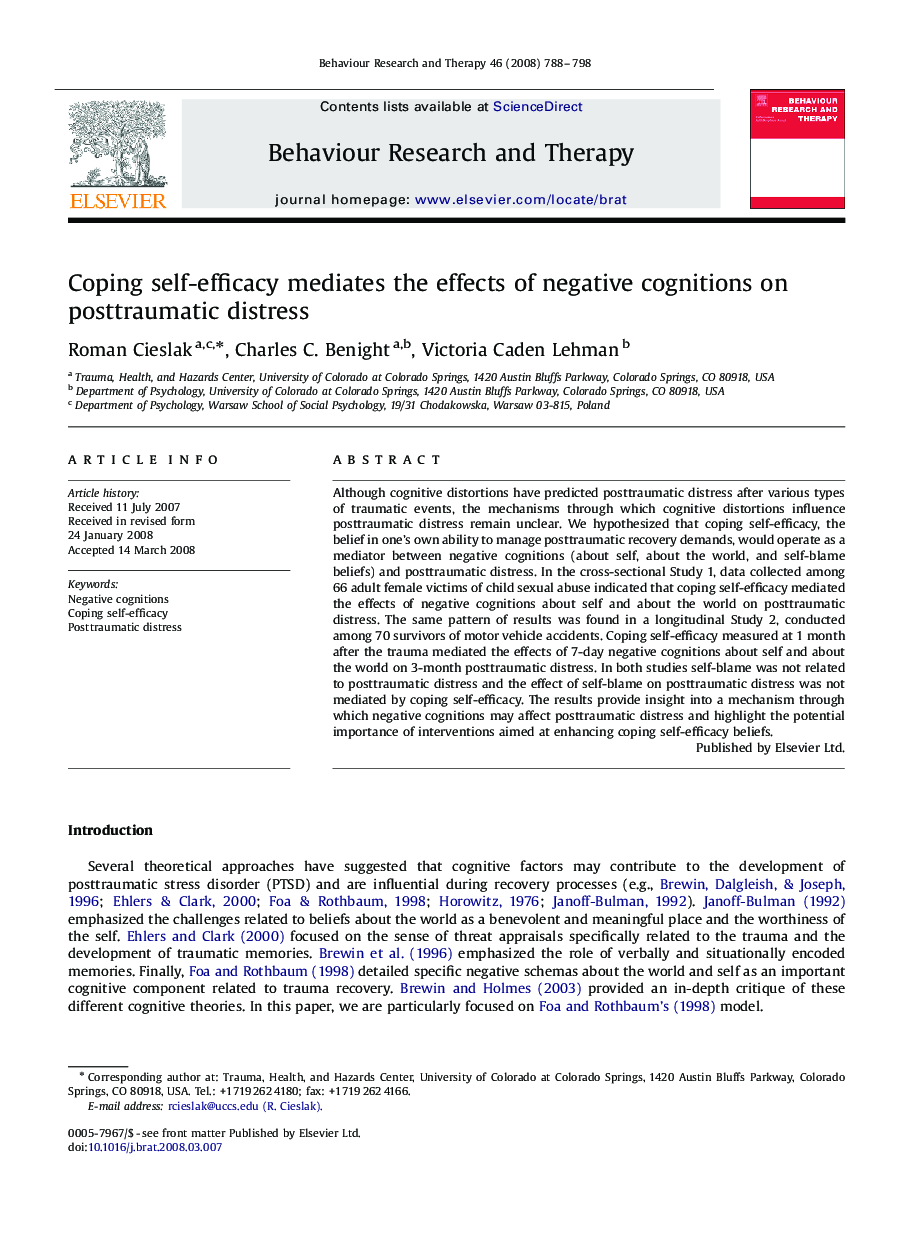| کد مقاله | کد نشریه | سال انتشار | مقاله انگلیسی | نسخه تمام متن |
|---|---|---|---|---|
| 902277 | 916147 | 2008 | 11 صفحه PDF | دانلود رایگان |

Although cognitive distortions have predicted posttraumatic distress after various types of traumatic events, the mechanisms through which cognitive distortions influence posttraumatic distress remain unclear. We hypothesized that coping self-efficacy, the belief in one's own ability to manage posttraumatic recovery demands, would operate as a mediator between negative cognitions (about self, about the world, and self-blame beliefs) and posttraumatic distress. In the cross-sectional Study 1, data collected among 66 adult female victims of child sexual abuse indicated that coping self-efficacy mediated the effects of negative cognitions about self and about the world on posttraumatic distress. The same pattern of results was found in a longitudinal Study 2, conducted among 70 survivors of motor vehicle accidents. Coping self-efficacy measured at 1 month after the trauma mediated the effects of 7-day negative cognitions about self and about the world on 3-month posttraumatic distress. In both studies self-blame was not related to posttraumatic distress and the effect of self-blame on posttraumatic distress was not mediated by coping self-efficacy. The results provide insight into a mechanism through which negative cognitions may affect posttraumatic distress and highlight the potential importance of interventions aimed at enhancing coping self-efficacy beliefs.
Journal: Behaviour Research and Therapy - Volume 46, Issue 7, July 2008, Pages 788–798